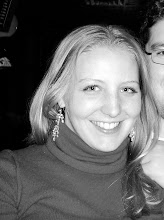Before I came to South Africa, I never considered what a privilege is it to understand the words spoken around me. Before living in a country with eleven official languages, I took for granted that many may have to learn a second, third and even fourth language just to communicate in a new city, or even a new part of town. I had no concept of what it felt like to listen intently for the few words that I might recognize in a limited new vocabulary and the frustration of not knowing how those small recognitions fit with the many unknowns.
More than ten months into my time in South Africa, my isiZulu is not even close to conversational. I do not understand the majority of what is spoken around me at church functions. I can sit through a six hours communion service and only occasionally hear words that I recognize, never mind understand the context in which they are spoken. (At least now I am better at recognizing the major sections of the liturgy.) Most people I meet are more than excited that I can simply greet them and exchange a few pleasantries in their home language. To my frustration, there is no expectation that I understand anything in isiZulu when English is my first language.
I never considered what an intimate connection one has to one’s mother tongue. It is the language spoken in one’s home by one’s family members, the language in which one most easily expresses emotion. It is the language in which prayer comes most easily. After months of attending church services in isiZulu, to hear a liturgy in English, the words themselves suddenly had new meaning. They were no longer words I heard every Sunday. I had missed these words for many, many Sundays and greeted them like old friends that I had not seen in a very long time. I was comforted by their familiarity and excited to appreciate them in a profoundly new way.
Like many Americans, I have never taken the study of language seriously. I’ve never had to, because almost everyone that I associate with in the US also speaks English as a first language. The circles in which I move have never necessitated that I learn another language. I studied French for the required number of years in high school and dabbled in it for a few semesters at university, but I had no appreciation for how difficult it can be to learn a language in a practical way. There is a difference between doing grammar exercises in a classroom and trying to ask for directions in an unfamiliar city. There is also a difference between singing through phonetically-written hymns having no concept of what one is actually saying and feeling that one is praying every word one sings.
I have crossed a language, and hence a cultural, divide. In my ignorance as a white, middle class, English-speaking American, I had no understanding of the difficulties a black, poor, isiZulu-speaking South African might encounter simply on the basis of their linguistic understanding. To be a Zulu in South Africa is not only to learn one’s mother tongue, but also to be required to learn at least English and possibly Afrikaans. (Both are historically colonial languages, with all their cultural, political and ethical implications on society.) My struggles to take public transport and find my place in a church liturgy do not compare to trying to understand the instructions given by an emergency room nurse or a magistrate considering the custody of children. But now, even in my own limited and small way, I understand differently.
I know now what it means to be an outsider and a minority, to struggle to understand and be understood. This is a feeling compounded by a new awareness of my race, class and nationality in any given social interaction. Now I have perhaps even a vague understanding of what the Latino, working-class, Spanish-speaking immigrant in the US might experience in this struggle. I will never ask the question, which now seems grossly insensitive, “Why can’t they just learn English?!”




 There is no such thing as a “typical day” in South Africa.
There is no such thing as a “typical day” in South Africa. Weekends are filled with errands that I put off during the week, social events (weddings, funerals, more casual hangouts), and church on Sundays.
Weekends are filled with errands that I put off during the week, social events (weddings, funerals, more casual hangouts), and church on Sundays. It’s humbling to realize that there’s something in control of this experience far more powerful and aware than I am.
It’s humbling to realize that there’s something in control of this experience far more powerful and aware than I am.
